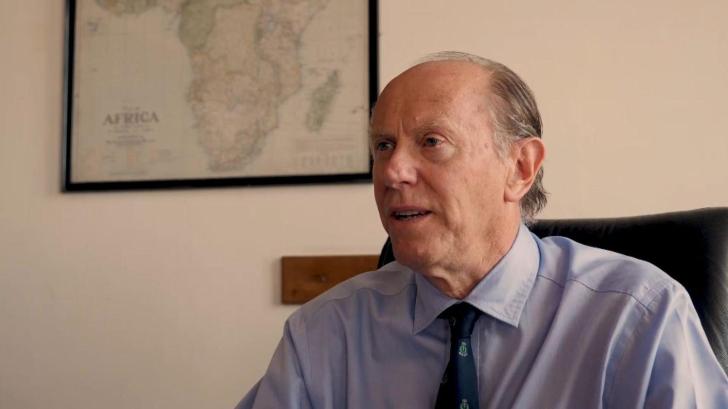News / National
Coltart wants Bulawayo to drink sewage-infested Khami water
26 Sep 2024 at 09:22hrs |
0 Views

Mayor David Coltart has suggested Khami Dam as a potential solution to Bulawayo's ongoing water crisis, yet he acknowledged the significant resistance from residents regarding the use of the dam's water for domestic purposes.
During the Wet Skills Foundation ceremony on Tuesday, Coltart drew comparisons to London's water recycling initiatives, noting that the city should enhance its water quality and explore innovative solutions. "To the south-west of the city, we have Khami Dam whose water people will not drink because they think it is filthy and yet the quality of that water can easily be enhanced. So there are many solutions that are open to us," he stated.
Despite Coltart's optimism, local residents have long been opposed to using Khami Dam water, citing concerns over contamination. Many believe that the dam's water is polluted with sewage and even human remains, remnants from the liberation war when bodies were reportedly disposed of in the dam.
Winos Dube, chairperson of the Bulawayo United Residents Association, expressed disbelief at the city's insistence on utilizing Khami Dam water. "Water from that place is not highly recommended for human consumption. Why don't they just come up with an irrigation scheme?" he questioned, highlighting the community's fears about the safety of using the dam's water for irrigating crops.
Dube further emphasized the need for thorough consultations with residents, stating that engineers should lead discussions rather than making unilateral decisions. His sentiments were echoed by Stephen Nkomo, chairperson of the Bulawayo Progressive Residents Association, who also opposed the use of Khami Dam water for drinking. "We want to have a demonstration and see the water for ourselves so that residents can gain confidence on whether council is able to clean that water so that it is safe enough to drink," Nkomo remarked.
While both Dube and Nkomo agree that recycling water presents a viable option, they advocate for its use in non-consumable applications, such as irrigation and maintaining council lawns, rather than for human consumption.
The persistent resistance from Bulawayo residents reflects their long-standing concerns about water quality and safety, especially in light of past outbreaks of waterborne diseases. In 2020, 13 individuals died from dysentery and typhoid in the Luveve suburb, further heightening fears regarding water safety.
As Bulawayo continues to grapple with water shortages, the debate over the use of Khami Dam water underscores the complexities of balancing innovative solutions with community health concerns.
During the Wet Skills Foundation ceremony on Tuesday, Coltart drew comparisons to London's water recycling initiatives, noting that the city should enhance its water quality and explore innovative solutions. "To the south-west of the city, we have Khami Dam whose water people will not drink because they think it is filthy and yet the quality of that water can easily be enhanced. So there are many solutions that are open to us," he stated.
Despite Coltart's optimism, local residents have long been opposed to using Khami Dam water, citing concerns over contamination. Many believe that the dam's water is polluted with sewage and even human remains, remnants from the liberation war when bodies were reportedly disposed of in the dam.
Winos Dube, chairperson of the Bulawayo United Residents Association, expressed disbelief at the city's insistence on utilizing Khami Dam water. "Water from that place is not highly recommended for human consumption. Why don't they just come up with an irrigation scheme?" he questioned, highlighting the community's fears about the safety of using the dam's water for irrigating crops.
While both Dube and Nkomo agree that recycling water presents a viable option, they advocate for its use in non-consumable applications, such as irrigation and maintaining council lawns, rather than for human consumption.
The persistent resistance from Bulawayo residents reflects their long-standing concerns about water quality and safety, especially in light of past outbreaks of waterborne diseases. In 2020, 13 individuals died from dysentery and typhoid in the Luveve suburb, further heightening fears regarding water safety.
As Bulawayo continues to grapple with water shortages, the debate over the use of Khami Dam water underscores the complexities of balancing innovative solutions with community health concerns.
Source - southern eye
Join the discussion
Loading comments…
































